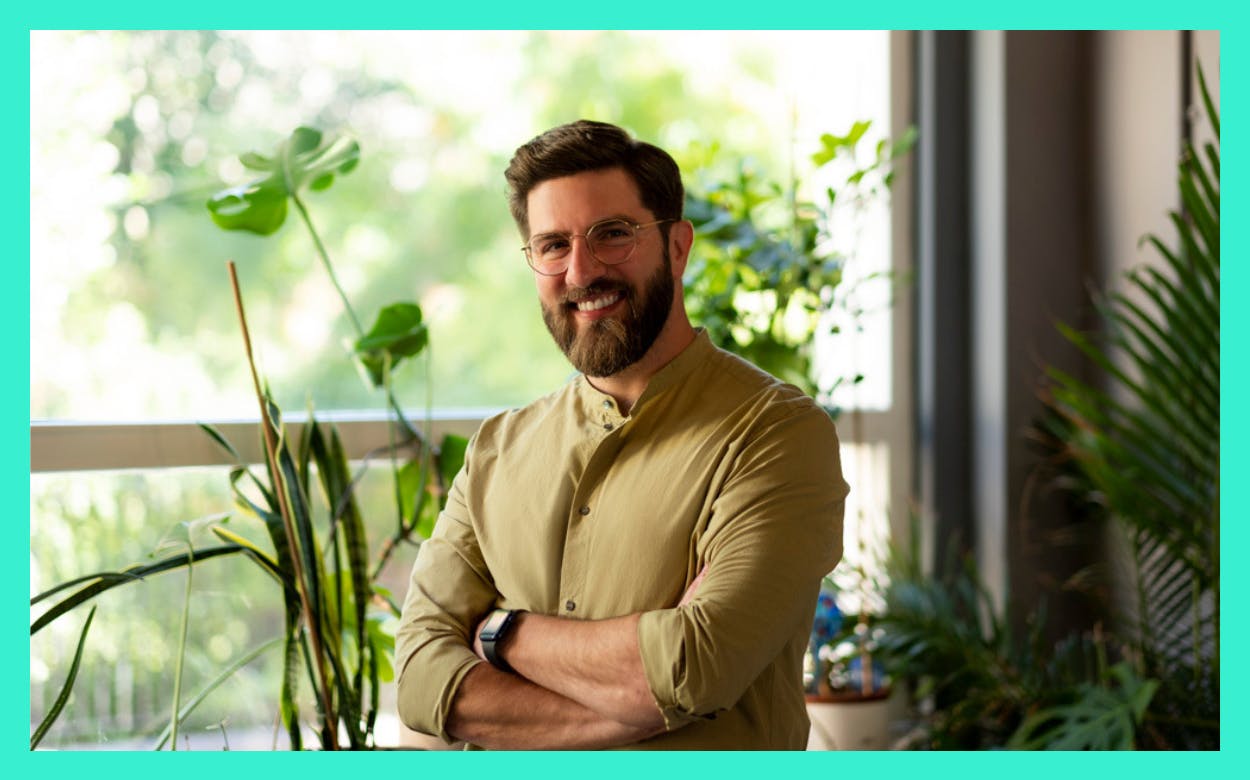Dr. Anas Nader (Co-Founder and CEO, Patchwork Health)
Anas is an A&E doctor and Co-Founder and CEO of Patchwork Health. The team at Patchwork is on a mission to make truly flexible and sustainable working a reality for all healthcare staff. Co-created with the NHS, their technology and services have been embraced by over 100 healthcare sites to date, helping save an estimated £40milion in staffing costs and sustainably staffing almost 4 million shift hours each year. Their fully integrated workforce management solution helps optimise outcomes for organisations, managers, staff and patients alike by supporting more flexible, sustainable and data-led staffing.

Can you explain your job to a five-year-old?
My job is to help healthcare services more easily fill vacant shifts, while giving clinicians more flexibility around when and where they work. In 2016, I launched Patchwork Health with my colleague Dr. Jing Ouyang to build a tech-enabled workforce solution that would do just that: better support and empower healthcare staff, while helping managers to more easily and cost-effectively plug staffing gaps.
We work in close partnership with healthcare organisations to deliver these products—including a temporary staffing solution, rostering product and comprehensive workforce data platform—which all help to address their staffing challenges and enable more flexible, efficient and cost-effective workforce planning.
What excites you most about your job?
I am most excited by the opportunity to make a truly positive impact on the future of the NHS, and the working lives of fellow clinicians, by helping to make healthcare staffing more sustainable. Amid the current healthcare staffing crisis, flexible working has never been more vital for boosting staff retention and keeping services safely staffed in line with rising patient demand. It’s an incredible privilege to be able to say that we’ve helped thousands of clinicians work flexibly in line with their personal needs, have saved organisations millions of pounds in staffing costs, and most importantly, have enabled hospitals to keep wards safely staffed at critical moments. This makes me extremely proud of the work we are doing.
It’s also incredible to be working with such an amazing group of mission-driven people at Patchwork. Every single team member brings so much passion and talent, which has enabled us to create a truly exciting and collaborative culture that is helping us grow and develop as a team while we work to bring new innovations to the healthcare frontline. I’m so proud of our team, and immensely privileged to be working alongside them.
Which trend will change the future of medicine?
AI is having a huge moment in the spotlight, and I think it will undoubtedly change the future of medicine. Whether that’s through diagnostic solutions that support clinical decision making or in automating administrative tasks to free up valuable time, it has the potential to provide significant support for healthcare staff in the face of rising patient demand and diversifying needs. Most importantly, the rise in the use of AI must be met with an equally rigorous update in regulation to ensure it can be deployed safely and effectively, with patient outcomes remaining front of mind.
Looking back, which trends have you missed or underestimated?
The pandemic certainly accelerated our understanding of how readily patients would embrace digitally-enabled and remote forms of care delivery, which was not believed to be possible before the pandemic. Social distancing and the necessary precautions that had to be taken to keep people healthy and out of hospitals made it a sudden necessity, and it was encouraging to see such a positive response from patients to the boom in digital solutions that were developed to meet this need. Since the pandemic, this has remained an essential tool for care delivery amid ongoing care backlogs and rising staffing pressures. It’s a trend I’m sure we’ll see continue to grow in the coming years.
Which MedTech initiative or startup deserves more attention?
There are definitely too many to name here! It’s incredible to see the wealth of startups developing innovative solutions to support clinicians and healthcare services across the globe. But without a doubt, those who are delivering tools which enable faster, easier and more efficient cross-service collaboration are worthy of a lot of attention. With rising demand and increasingly complex patient needs, collaboration across providers will be essential for services to continue delivering effective, joined-up, and new models of care for generations to come.
Where would you put a million dollars?
Outside of healthcare innovation, an area that I’m really fascinated in and think is deserving of more attention is agro- and food-tech. Amid the current climate pressures facing communities across the globe, I think it has a huge role to play in helping reduce the ecological impact of food production while helping us maintain sustainable food supply to meet the demands of our growing population. This includes innovations that are creating new ways to grow food, such as vertical farming; tech and AI-based solutions that can help us reduce food waste; and solutions that are focused on improving the logistical side of food transportation and delivery, to reduce carbon footprint and increase supply chain sustainability. It’s an area I think will continue to grow in necessity, and is worthy of significant attention and investment.
What's the best advice you've ever received?
The most valuable advice I've ever received is to embrace imposter syndrome rather than trying to push it away. It’s something we all experience at some point in our lives, and was certainly something I’ve had to contend with as a first-time founder, especially when I first stepped away from full-time clinical work to launch Patchwork Health. I learnt quickly that trying to push those feelings of doubt away only made them louder. Instead, by accepting my imposter syndrome and leaning into the learning curve, I was able to build confidence by giving myself the chance to learn and develop new skills along the way. Remember that everyone feels imposter syndrome at one point or another—it’s simply a sign that you’re learning. Embrace it!